facial recognition
Latest

Homeland Security wants airport face scans for US citizens
Homeland Security is joining the ranks of government agencies pushing for wider use of facial recognition for US travelers. The department has proposed that US citizens, not just visa holders and visitors, should go through a mandatory facial recognition check when they enter or leave the country. This would ostensibly help officials catch terrorists using stolen travel documents to move about. The existing rules specifically exempt citizens and permanent residents from face scans.
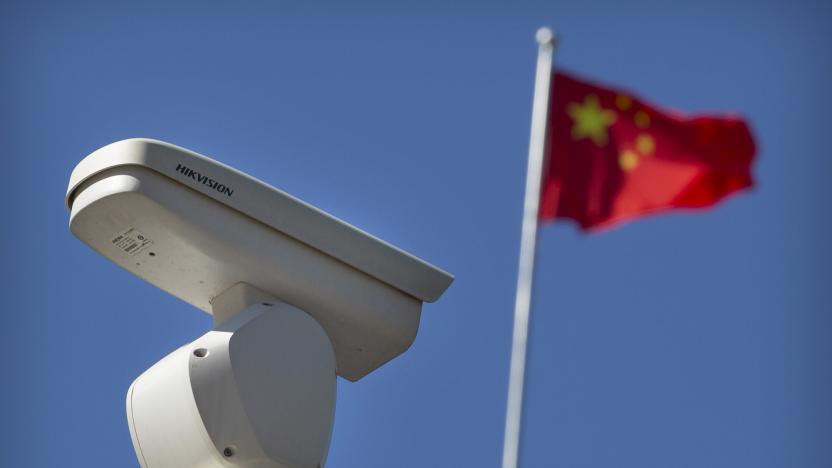
Chinese companies want to help shape global facial recognition standards
The use of facial recognition technology is continuing to expand, despite concerns about its accuracy and fairness and about how it could be used by governments to spy on people. These concerns have been heightened following a report by the Financial Times which shows that Chinese groups have a significant influence in shaping international standards regarding the technology.
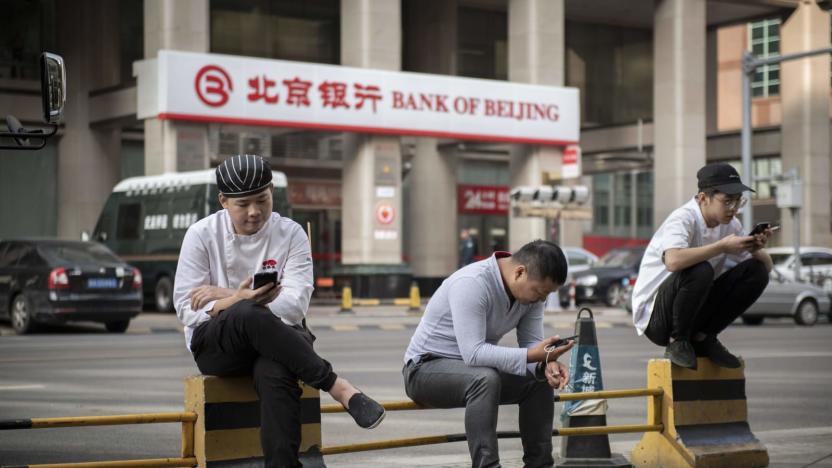
China now requires face scans to sign up for phone service
China is as determined as ever to link real identities to the digital world. As of December 1st, anyone signing up for a new cellphone or cellular data contract is required to not only show their national ID card, but submit to a face scan to verify that identity. It's ostensibly meant to reduce fraud, but it also reduces your ability to use phone services in an anonymous way -- it'll be that much easier for the Chinese government to silence dissenters.

Facebook built a facial recognition app that identified employees
Facebook's stance on facial recognition has changed as of late, but its past enthusiasm for the technology may have been stronger than previously thought. Business Insider has learned (subscription required) that Facebook developed an internal mobile app between 2015 and 2016 that used facial recognition to identify coworkers and their friends. You only had to point the phone at someone to get their name and profile picture -- helpful if you were struggling to remember the name of a colleague you met at a party once.

Facebook is testing a face detection tool to verify your identity (updated)
Facebook isn't entirely shying away from facial recognition, it seems. Code explorer Jane Manchun Wong has discovered a reference to a purported facial recognition system in Facebook's mobile app that would verify your identity. You'd have to take a "video selfie" where you look in different directions to give Facebook a more complete view of your face. It would bit like Apple's Face ID and similar systems, but there's no evidence it would require a depth sensor. Facebook vows that "no one else" will see the video and that it'll delete the clip after 30 days, although that's not quite as secure as systems like Face ID (which doesn't allow data to leave the device, and only captures "mathematical representations" of your face).
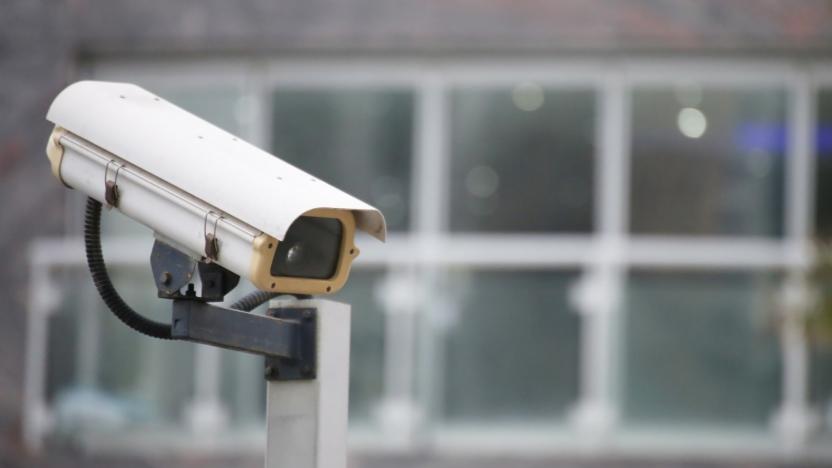
ACLU sues to reveal the FBI's uses of facial recognition
The ACLU is unsurprisingly concerned about the FBI's use of facial recognition, and it wants to force the agency to divulge its practices. It just filed a lawsuit against the FBI, the Justice Department and the DEA ordering them to turn over records showing "when, where and how" they use facial recognition tech. The civil liberties group was concerned that these systems could "fundamentally alter" society and lead to constant surveillance, and pointed to the FBI's history and public stances as reasons to be concerned.

Australia wants to verify porn users by scanning their faces
Australia has proposed another in a series of zany attempts to control the internet. This time, the government wants to do facial scans to confirm a user's age before they can watch porn or gamble online, according to the Sydney Morning Herald. Then, the government would verify the user's identity using another proposed scheme called the "Face Verification Service."

After Math: Hoping against hope
In uncertain times like these, staying optimistic can be a real challenge. But whether you keep yourself centered with meditation, daily affirmations or sheer stubbornness, take a cue from this week in rose tinted headlines.

Facebook AI can 'hide' people from facial recognition
Facebook has already stopped using facial recognition by default, but now it might have a way for people to dodge facial recognition altogether. Its researchers have developed an AI system that can "de-identify" people in real time, including live videos. The approach pairs an adversarial auto-encoder with a trained face classifier to ever-so-slightly distort a person's face in a way that confuses facial recognition systems while preserving a natural look that stays recognizable by honest-to-goodness humans. You might see tiny differences in Jennifer Lawrence's face, for instance, but you won't have any doubt that it's her.
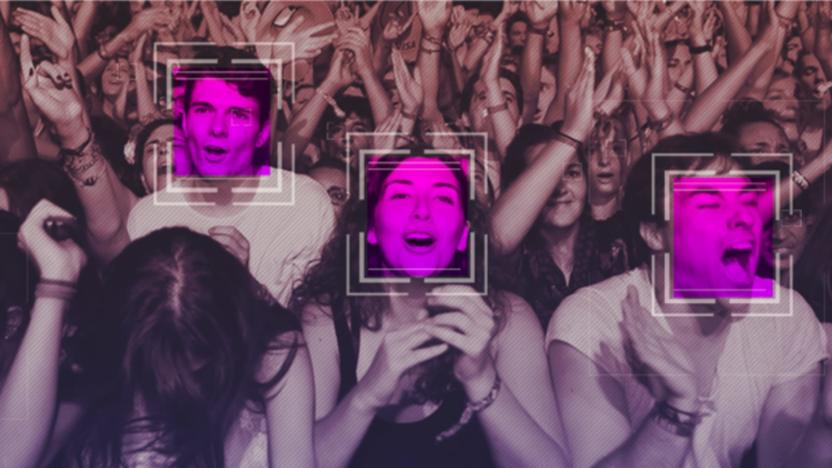
40 music festivals pledge not to use facial recognition
40 of the world's largest music festivals -- including Coachella, Bonnaroo and SXSW -- have said they won't use facial recognition at their events. Now, artists who put pressure on the companies behind those festivals are claiming a victory.
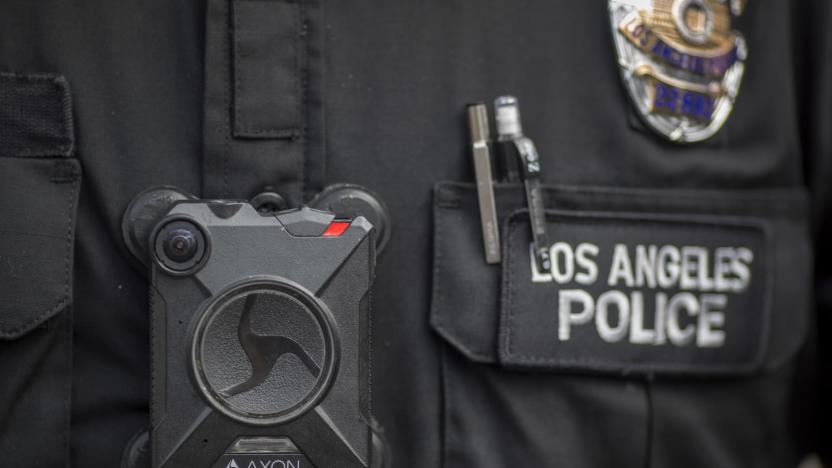
California's new police body cam law blocks the use of facial recognition
In August, backers of California's Body Camera Accountability Act pointed out a test of facial recognition software that identified 26 state lawmakers as criminals. They argued it showed the flaws of such technology, and now Governor Gavin Newsom has signed AB1215 into law, preventing law enforcement in the state from "installing, activating, or using any biometric surveillance system in connection with an officer camera or data collected by an officer camera" through 2023. It goes into effect on January 1st, 2020. The bill's sponsor, Phil Ting said of facial recognition tech, "It's not ready for prime time, as it falsely matches innocent people with mugshots, including me." ACLU technology and civil liberties attorney Matt Cagle said "With this law, California has acted boldly to stem the expansion of a surveillance state that presents an unprecedented threat to our rights and liberties. ace-scanning police body cameras have no place on our streets, where they can be used for dragnet and discriminatory surveillance of people going about their private lives, including their locations and personal associations."

Amazon wants to write the rules regulating facial recognition tech
Amazon is drafting laws to regulate facial recognition technology, Vox reports. Supposedly, the company hopes that federal lawmakers will adopt its proposal as legislation. "Our public policy team is actually working on facial recognition regulations; it makes a lot of sense to regulate that," CEO Jeff Bezos said in an appearance following Amazon's hardware event yesterday.
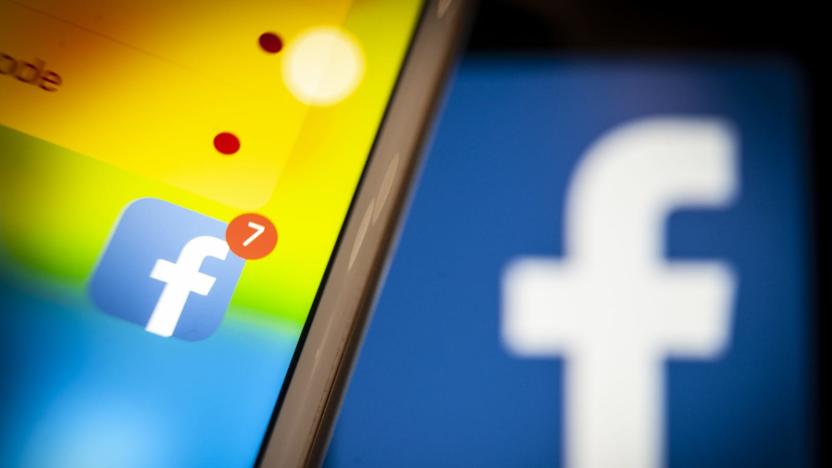
Facebook stops scanning faces by default
Facebook is directly tackling complaints about its facial recognition practices for photo tagging. It's expanding access to its Face Recognition privacy setting (introduced in 2017) to all users, and will stop scanning faces by default. Those who don't have the setting will have to explicitly grant permission for it. You'll get a notice when the feature is available, but nothing will happen if you ignore the alert. Friends can still tag you by hand -- they just won't get automatic suggestions based on face recognition.

The EU may give citizens more control of their facial recognition data
The EU may impose strict limits on the use of facial recognition technology. According to Financial Times, the European Commission is working on laws that would give citizens explicit rights over their facial recognition data, like the right to know when it's used. The regulations would apply to both businesses and police or security forces.

Amazon says its facial recognition tech can identify fear in people's faces
Amazon says its contentious facial recognition technology can now detect fear in people's faces. That makes it the eighth emotion it can identify along with happiness, sadness, anger, surprise, disgust, calmness and confusion. In addition, Amazon says it has improved Rekognition's age range estimation accuracy, so customers can get narrower age ranges "across most age groups."
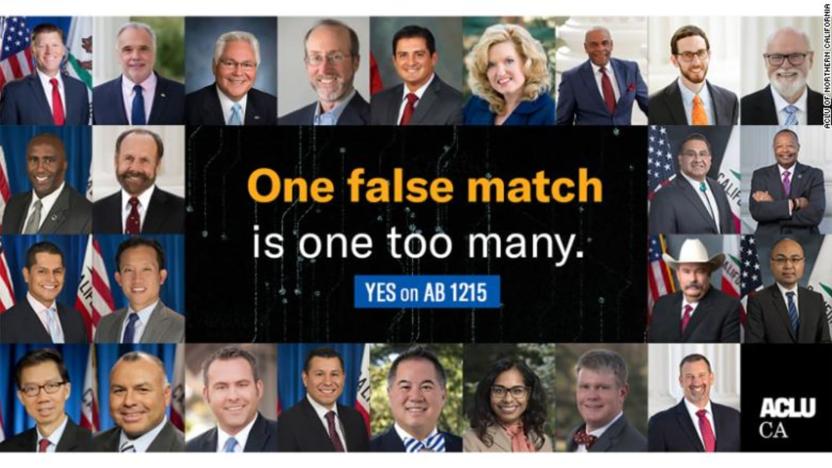
Facial recognition tech misidentified 26 California lawmakers as criminals
The ACLU, which wants to ban facial recognition technology in police body cameras, says that its own tests of the technology mistakenly flagged 26 California lawmakers as criminals. More than half of those falsely identified were people of color. The experiment follows a similar test conducted last year, where 28 members of Congress -- the majority also people of color -- were mistakenly identified as criminals.

Massive biometric security flaw exposed more than one million fingerprints
A biometrics system used by banks, UK police and defence companies has suffered a major data breach, revealing the fingerprints of more than one million people as well as unencrypted passwords, facial recognition information and other personal data.

Appeals court allows Facebook facial recognition lawsuit to proceed
Facebook users now have the green light to sue the company over its use of facial recognition tech. The 9th US Circuit Court of Appeals in San Francisco ruled in the plaintiffs' favor 3-0 after Facebook tried to block a class-action lawsuit which claims it illegally captured and stored millions of users' biometric data without their consent.

AI bar system ignores jerks who cut in line for drinks
There are two kinds of people in this world. Those that queue patiently at the bar for their drinks because they recognize their place in the great order of things, and those that elbow their way to the front and jump the queue because they're massive jerks. If you're the latter, I see you, pal. And now, thanks to AI, so does the bartender.
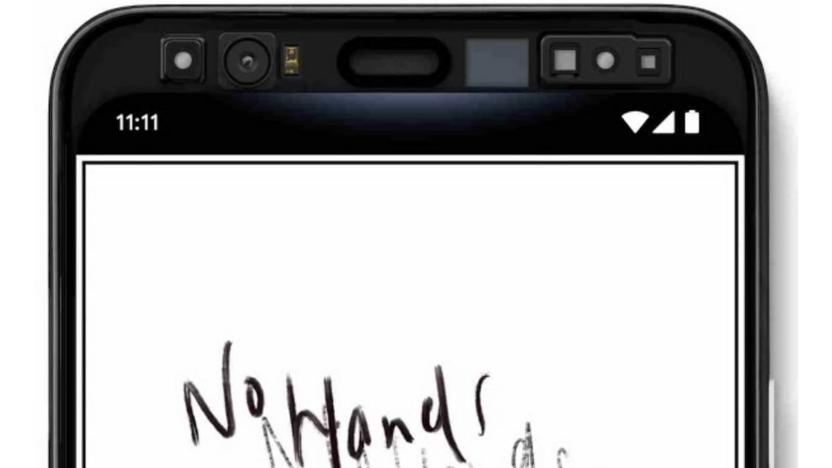
Google paid passers-by for face scans to improve the Pixel 4
Reports have swirled for days of Google paying people $5 in gift certificates to scan their faces, and now it's clear just why: it's for the Pixel 4. Google has confirmed to The Verge that the paid scans were meant to improve the accuracy of the Pixel 4's face unlock feature by collecting more face data and improving algorithms. Facial recognition has a history of bias in gender and skin color, Google said, and it was important to offer both "inclusiveness" as well as "robust security and performance."








